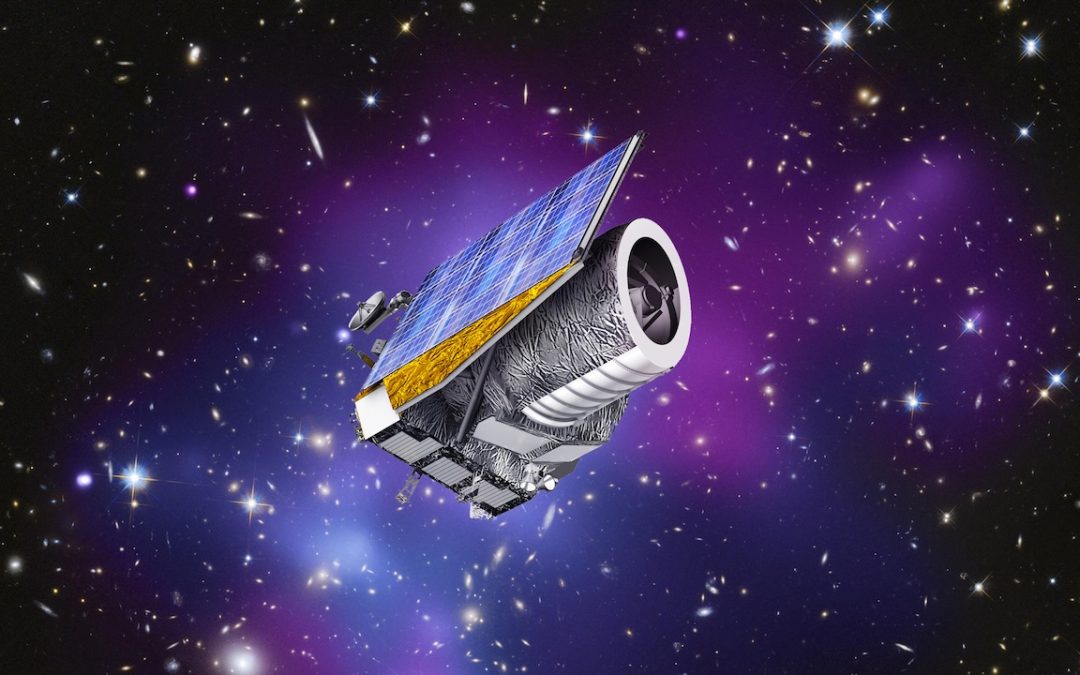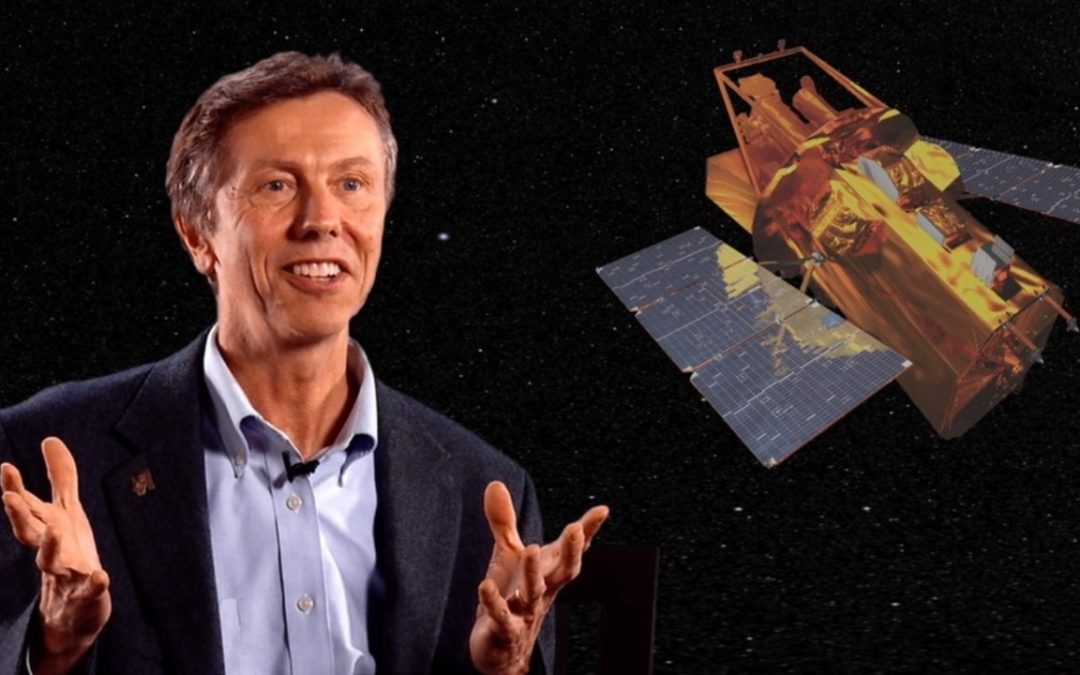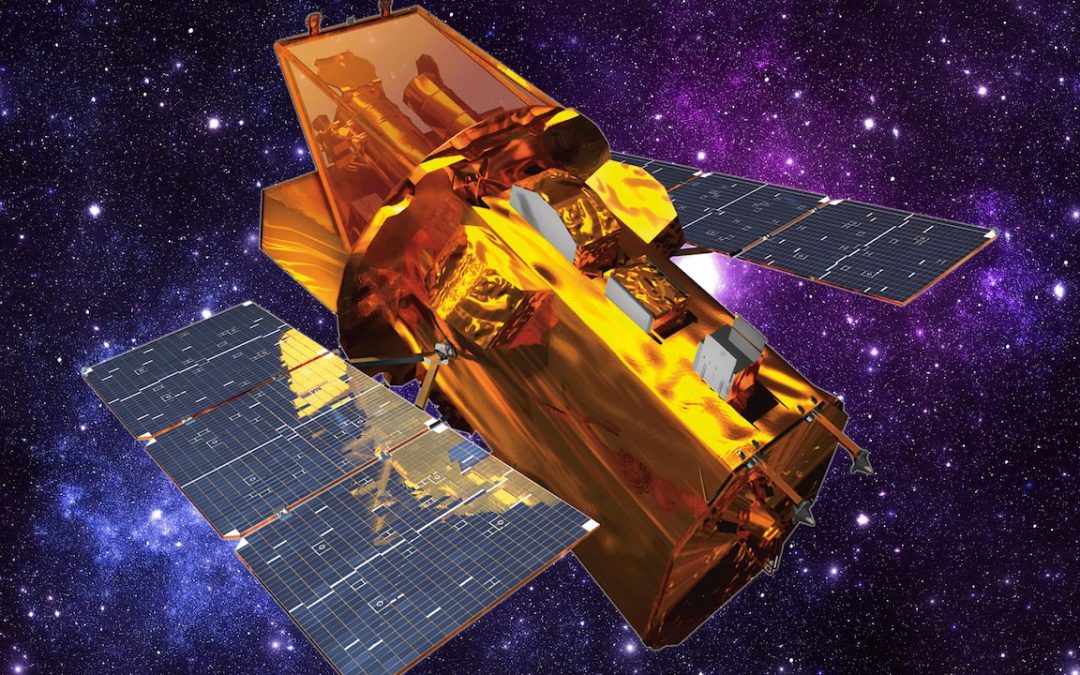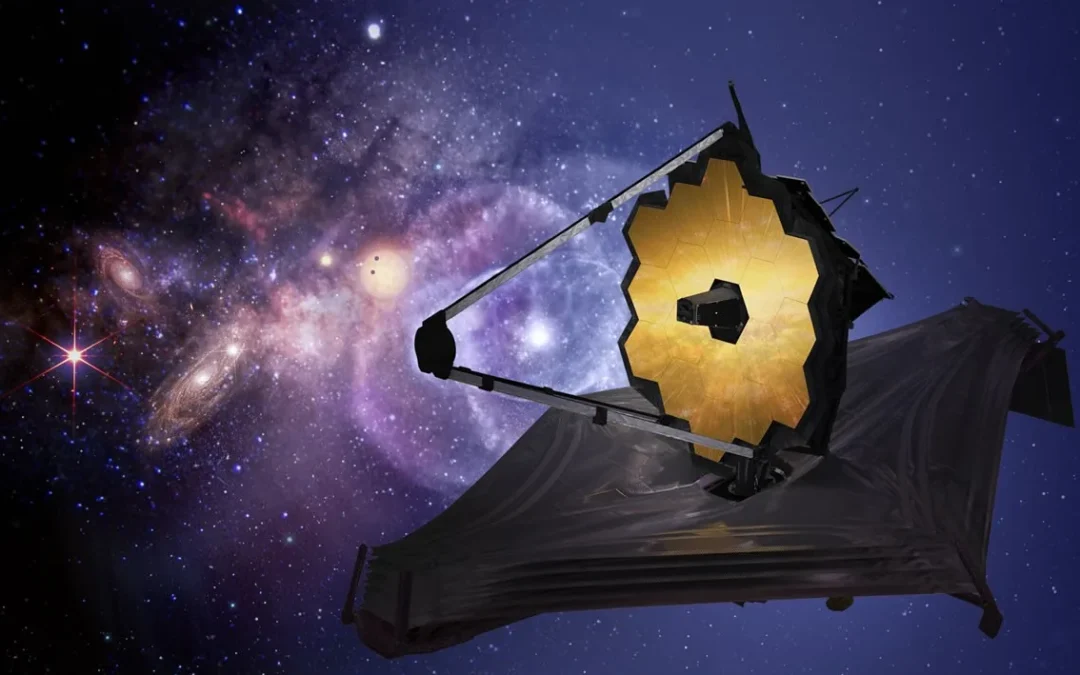Let’s look at the Euclid Space Telescope..



Fraser Cain
Universe Today

Dr. Pamela Gay
CosmoQuest

Let’s look at the Euclid Space Telescope..

Last week we talked about the Neil Gerhels Swift Telescope, this week we’ll be talking about the man behind the mission.

Let’s look over the long life of the Neil Gehrels Swift Telescope as it watches for the multi-spectral flashes of high energy explosions.

Let’s talk about that giant telescope that’s changing everything. We have been waiting our entire careers to make this episode on the James Webb Space Telescope, AKA the JWST.
Recent Episodes
https://youtu.be/AWvd_LN1VL8 Are asteroids dangerous? Just ask the dinosaurs, and they'll tell you a sad story of fiery death. It turns out we're in a shooting gallery of space rock and metal, and somewhere out there there's one with our name on it. Should we be...
https://youtu.be/H8JiaXcGvVI A rock is a rock is a rock, right? Across the Solar System there are giant rocky asteroids and even rockier moons. What's the difference between these two families of objects, and where did they come from? Show Notes | Transcript Show...
https://youtu.be/YvV9X_weY1w For the longest time, the only gas giant planets we knew about were Jupiter and Saturn. But now in the age of extrasolar planets, astronomers have discovered thousands of gas giants across almost as many star systems. What new discoveries...
https://youtu.be/9OVAbDgTgSM Good news! Over the next few years, we're going to see a flotilla of new missions headed to Jupiter and Saturn. Why aren't we seeing more missions to the outer planets, like Uranus and Neptune? It turns out, those places are far away....
https://youtu.be/3hJVYAH5wsQ The outer Solar System is far enough from the Sun that water doesn't get blasted away into deep space. In this icy realm, there are many worlds with vast quantities of water ice. Today let's look at the icy outer moons and dwarf planets....
https://youtu.be/1L2FdcC_vsA We're learning more and more about the outer planets of the Solar System. Uranus and Neptune are ice giants, filled with water and other volatiles that we'd consider ice if it was here on Earth. What's inside these worlds, and what could...
https://youtu.be/La5ZNRro6zM Funding for basic science has always been tricky business, coming mainly from universities, government, companies, or wealthy individuals, but who knows how many fascinating discoveries were never made because of a lack of funding? We now...
https://youtu.be/ZGJesDhTVpw You're familiar with the Hubble Space Telescope, of course, but it's just one of NASA's Great Observatories. After Hubble came three more incredible observatories, each greater than the last. Together, they would fill in almost the entire...
https://youtu.be/r4wvIIWLfcI After Pluto lost its planethood, we were down to 8 planets. But there's growing evidence of another world (or worlds) out beyond the orbit of Pluto. Is Planet 9 out there and how will we find it? Could there even be a Planet 10? Show Notes...
https://youtu.be/Rik2atXaE6E There are asteroids and there are comets. But there's an entirely separate class of objects called centaurs. But instead of half-human, half-horse, imagine an object that's half comet, half asteroid but 100% interesting. Show Notes |...
https://youtu.be/qreJoGzZx-4 It's been 15 years since Pluto was kicked out of the planet club. It also happens to be the topic of our very first episode of Astronomy Cast more than 600 episodes ago. Are there any updates? Does Pluto have a chance of regaining...
https://youtu.be/hMULAbRA8YQ Last week we talked about the various ways that astronomers could detect the presence of intelligent civilizations by observing technosignatures. This week we'll give you an update on the state of searching for extraterrestrials. This...
https://youtu.be/64_YM6PgnA0 Last week we talked about what it's going to take to confirm basic biological life across the Solar System and the Milky Way. This week, we'll discuss what it's going to take to detect intelligent life out there in space. Show Notes |...
https://youtu.be/0rtBR5WUx6E Are we alone in the Universe? It's one of the biggest scientific questions we can possibly ask. And yet, with rovers on Mars, missions planned to visit Europa and Ganymede. Powerful telescopes able to detect the atmospheres of exoplanets,...
https://youtu.be/q9ycfi0lbGo Volcanoes can be some of the worst natural disasters we can experience here on Earth, but life wouldn't even exist without them. What are volcanoes good for anyway? Show Notes | Transcript Show Notes See the First Images NASA’s Juno Took...
https://youtu.be/A3cfWlxF4YI As you all know, Pamela refuses to talk about any missions which aren't actually doing science. Well, Perseverance has crossed the line, from fantasy to an actual working rover, scooping regolith and yeeting helicopters. What has the rover...
https://youtu.be/9Hd_7NacOgU Mars is cold and dead today, but the massive volcanoes tell us what the planet used to be like, millions and even billions of years ago. But how volcanically active is the planet today? That's what NASA's Mars InSight lander is there to...
https://youtu.be/Tu5ybfeDTW4 Have you ever wanted to be a time traveler? Good news! You're time traveling right now. Into the future at one second per second. Too long? Don't want to wait? Good news, Einstein's got you covered. Today, let's talk about the weird world...
https://youtu.be/JMyfpoQbQaI Last week we talked about balloon-based astronomy. This week we're going to talk about putting balloons on rockets and making observations mid-flight. Welcome to the world of sounding rockets. Show Notes | Transcript Show Notes SpaceX...
https://youtu.be/GRftqiXvwWg When you think about the world's observatories, I'm sure you're imagining huge telescopes perched atop mountain peaks, or space telescopes like Hubble. But you might be surprised to learn that some telescopes are carried high into the...